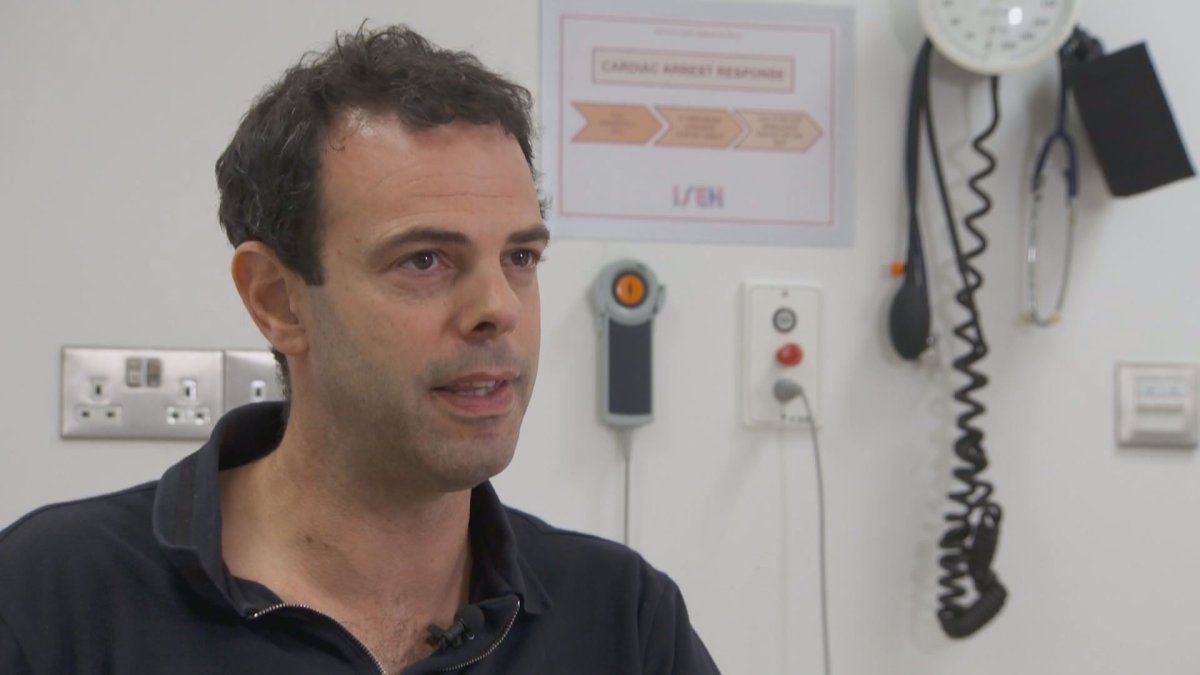Former men’s rugby national team star Jamie Cudmore is fighting on two fronts to make the sport safer for professionals, amateurs and junior players.

Cudmore played 43 times for Team Canada, including at four Rugby World Cups. He now works as head coach of the Pacific Pride Academy in Langford, B.C.
The 41-year-old is currently involved in a lawsuit in France with his former professional club, ASM Clermont Auvergne.
Cudmore alleges the team was negligent in allowing him to return to the field after suspected concussions in two European Champions Cup playoff games in 2015.
“In the semifinal, I had a pretty bad head knock (and) was deemed unfit to return to play,” said Cudmore.
“Five minutes later, the team doctor said: ‘Well, actually, we need you because one of your second-row partners is injured.’”
The lawsuit is ongoing, and Cudmore’s allegations have not been proven in court. ASM Clermont Auvergne denies any wrongdoing.
However, earlier this year, a court-appointed neurologist in France deemed the team was responsible for the harm suffered by Cudmore after he played on with a concussion in the European Champions Cup final two weeks later.
“While I was being stitched up in the changing room, I started vomiting in the change room and (had) classic signs of a major head injury and (I) continued wanting to play because most rugby players, you’re not thinking coherently in those times,” said Cudmore.
“The doctor again allowed me to return to play and finish the game, and that’s kind of where it started.”
What started was a series of symptoms associated with concussion.
“I had a myriad of symptoms with sensitivity to light, sensitivity to noise, my kids running around,” said Cudmore. He found it almost unbearable.
“I didn’t sleep for about 10 days because every time I wanted to sleep — every time I closed my eyes — it was like I had a hive of bees behind my eyes.”
Cudmore recovered and returned to play with Team Canada in the 2015 World Cup that fall.
He says he continues to deal with some “deficiencies” that could be related to concussion, but acknowledges that it is difficult to prove any connection to his rugby career.
In 2013, the NFL reached a US$765-million settlement with former players to fund medical exams, concussion-related compensation and medical research.
In 2018, the NHL and attorneys for retired players announced details of a similar settlement.
Concussion education
After Cudmore’s experiences in 2015, he and his wife Jennifer set up a foundation called the Rugby Safety Network.
It is designed to help educate players about rugby concussion and to provide financial support to players suffering from the consequences of continuous concussions.
“One of the things that we tried to do with (Rugby Safety Network) is create an education foundation which educates young players who watch us every weekend and show that those things that happen at the pro level are not what needs to be done at the amateur level because that’s where kids are most fragile,” said Cudmore, who recently moved back to Canada after 15 years of living in France.
“We’ve been doing a lot of education modules around Europe. We’ve done a lot of work with different rugby schools, rugby clubs at the junior level throughout France.”
He’s now bringing that work to Canada.
Cudmore spoke to coaches, parents and players in Nova Scotia this year after rugby was briefly banned in high schools there over insurance concerns.
“We’re talking about tackling technique, we’re talking about education around concussion symptoms. And it’s hugely rewarding for myself, and more importantly, education for those kids around the concussion problem is extremely important,” said Cudmore.
The Rugby Safety Network has partnered with the Princess Charlene of Monaco Foundation, and a team of kids team from Shawnigan Lake, B.C., has been invited to a tournament in Monaco next May.
Concussion research
A leading expert in the effects of sports concussions says that when concussions are misdiagnosed or mishandled in a professional game, they can have consequences that go beyond the player involved.
“They also send a message to the many thousands of amateur players and younger players that maybe it’s not so serious,” said Dr. Richard Sylvester, a consultant neurologist at the National Hospital for Neurology and Neurosurgery in England.
“Maybe (they think) they can carry on playing if they get a bad knock. I think, really, the professional game has to lead the way with education and doing the right thing.”
Sylvester says that by their very nature, concussion symptoms put a player in danger.
“After a concussion, your risk of further injury is much higher than if you hadn’t had a concussion,” said Sylvester.
“Not that the injury may be worse, but because your brain is not working properly, your timing may be off, your co-ordination, your decision-making in play. Players are at high risk of another injury or injuring their teammates or opponents.”
Rugby governing bodies have introduced or tested a number of new rules that aim to reduce concussions.
The global governing body World Rugby now mandates that any player who shoulder charges at an opponent’s head, intentionally or otherwise, must be sent off the pitch.
In 2018, England’s Rugby Football Union temporarily reduced the maximum legal tackle height for one of its competitions from the shoulder level to armpit level, but the trial was prematurely ended after data showed the rate of concussions actually went up.
Cudmore is keen to stress that the benefits of rugby far outweigh the risks, especially if proper care is taken around concussions.
“We’re not going to change the game drastically because it’s a game that I love and I know millions of people do love,” said Cudmore.
“But if we can make it a little bit safer every day, well, why not?”






Comments